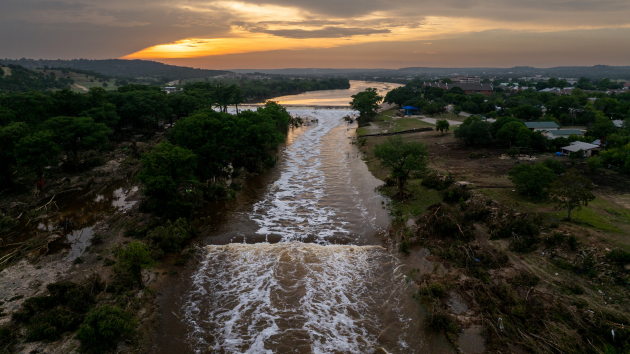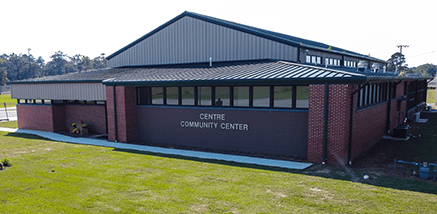
(Texas) — Central Texas is continuing to recover from devastating rains and “catastrophic” flooding that damaged homes and businesses and killed more than 100 people, many of whom were children.
Victims and first responders may suffer physical injuries from natural disasters, such as floods, but psychologists and disaster experts say such events can also exact a heavy mental health toll – and the resources to address that cost may not always be available.
“We don’t talk about mental health in general enough and mental health services, in general, are under-resourced. So, when it comes to disasters, we’re already strapped for resources,” Reggie Ferreira, a professor at Tulane University’s School of Social Work and director of the university’s Disaster Resilience Leadership Academy, told ABC News.
“I would definitely say, especially for decision makers, to prioritize mental health because, at the end of the day, you can have wonderful community-based programs,” he continued. “But if your community’s mental health is not taken care of first, these infrastructure programs don’t mean a lot in the long run.”
Mental health impact of natural disasters
A 2013 review of mental health responses to community disasters, published in the Journal of the American Medical Association, stated that one-third or more of individuals severely exposed to a natural disaster can develop post-traumatic stress disorder (PTSD) or other disorders.
Another 2023 meta-analysis found a connection between natural disasters and a deterioration of mental health. implying an increase in mental illness soon after extreme weather events.
Ferreira said every individual is unique, and so everyone may have a different response to a natural disaster, but there are common signs of trauma to look out for.
“Fear, disbelief, numbness, guilt as well,” he said. “You know, ‘Why am I experiencing this?’ Or, if someone has passed away, there’s a [survivor’s] guilt element that comes in. Longer term, there’s definite symptoms that [arise] such as depression, anxiety; post-traumatic stress disorder can come about.”
He continued, “There might just be a trigger that comes about, a particular smell or seeing an image or just recalling a particular event that happened with them during a disaster. This … results in cascading effects for people.”
Ferreira said some of those affected may turn to substance abuse as a result of the trauma, or experience conflict in relationships.
Climate scientists have said that climate change is likely to make extreme weather events, similar to those experienced in Texas, occur more frequently and with more intensity . This means “there will definitely be an increase in mental health symptoms as it relates to our changing climate,” according to Ferreira.
If you need help, Ferreira said it’s important to be aware of hotlines that are available, such as the American Red Cross’ Disaster Distress Helpline. It’s also helpful for people in an affected community to provide social support, if they can.
“If you were not impacted directly by the disaster, it’s important if you can get someone a meal or replace some of their daily tasks for them,” Ferreira said. “That social support in the long run really does have an impact on mental health outcomes.”
Effects on children
Natural disasters, like the floods in Texas, also can take a mental and emotional toll on children.
Marni Elyse Axelrad, clinic chief of the psychology division and a pediatric psychologist at Texas Children’s Hospital, said there are two groups of children to be concerned about: those who were severely affected and lived through the event, and those experiencing it via the news, on social media, or who know someone affected by the event.
For the children who were directly affected, “in the short term, we worry about seeing things like increased irritability and anger, loss of interest in things children were previously interested in, more or less sleep, changes in appetite, physical complaints and exacerbations of previous difficulties,” Axelrad told ABC News.
In the long term, the affects could lead to anxiety, depression, disruptive behavior and symptoms of PTSD, Axelrad said.
Children who were not directly affected can experience similar symptoms, Axelrad said, but noted that they can be lessened to varying degrees by reducing the child’s exposure to coverage of the natural disaster.
Axelrad said that there’s no right way or wrong way for a child to respond in the immediate aftermath of a natural disaster. However, it’s important to reestablish familiar routines for children as soon as possible. It’s also important for parents and other adults to validate a child’s feelings, as well as to spend extra time with them and to set a good example of coping skills through their own behavior. It also important to validate the feelings of children who were not directly affected by the natural disaster, she added.
“Making sure that we’re not invalidating a child’s feelings, [that] we’re not saying, ‘Stop crying, you weren’t a part of this. You’re so lucky that it wasn’t you,'” Axelrad said. “Those aren’t very helpful things to say. Rather, saying, ‘I also saw those images and they were really scary. I hear that you’re scared, and I want to reassure you about your safety’ is very important.”
“I think that sometimes we try really hard to minimize the negative feelings in our children and these negative feelings are normal and to be expected,” Axelrad added.
Copyright © 2025, ABC Audio. All rights reserved.




